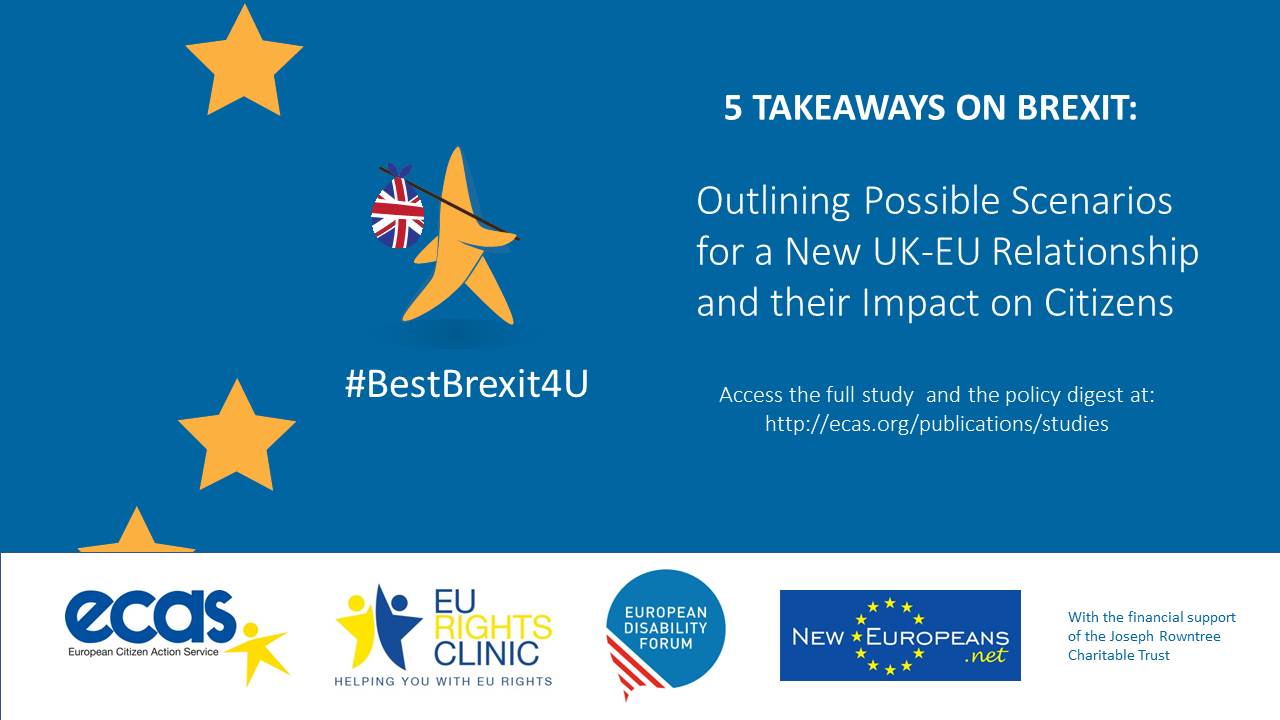*Updated 17 April 2015*
The UK Government has laid regulations before Parliament that will give effect to the ruling in Case C-202/13 McCarthy.
On 16 March 2015, the Immigration (European Economic Area) (Amendment) Regulation 2015 SI No 694 were laid before Parliament and will come into force on 6 April.
The effect of these amendments will be that, from 6 April 2015, EEA Family Permits will no longer be required in circumstances where a valid residence card issued under Article 10 of the Directive is held by a non-EEA national accompanying or joining an EEA national exercising free movement rights in the United Kingdom.
In Case C-202/13 McCarthy the CJEU ruled last December that “Member States are, in principle, required to recognise a residence card issued under Article 10 of Directive 2004/38, for the purposes of entry into their territory without a visa”.
The judgment was handed down in Case C-202/13 McCarthy on a reference for a preliminary ruling by the English High Court, concerning a dual British/Irish citizen residing in Spain with his Colombian wife and their children. Mrs McCarthy held a residence card issued under Royal Decree No 240/2007, which gives effect to Directive 2004/38 in Spain. Despite holding such a residence card, the UK authorities had required Mrs McCarthy to obtain a visa called an EEA family permit in order to enter the UK with her husband. The McCarthys brought proceedings before the High Court to challenge the UK’s policy not to recognise such residence cards. The High Court then referred the matter to the EU Court of Justice for a binding opinion on the interpretation of the EU rules.
The implementation of the CJEU’s ruling will bring an end the UK’s long-running policy that effectively required all family members of EU citizens to obtain an EEA Family Permit before being able to enter the UK with their EU relative, even though they held a residence card issued by another EEA State.
Under Article 5(2) of Directive 2004/38, which governs the rights of entry and residence of EU citizens and their family members who move around the EU, the possession of a residence card issued under Article 10 should exempt a non-EU family member from the need to obtain a visa when they travel to an EU country with their EU relative or join them EU there. The Directive applies to all EU countries as well as Norway, Liechtenstein and Iceland by virtue of EEA Standing Committee Decision No 158/2007.
However, the Directive does not apply to Switzerland. As a result, the visa exemption does not apply to those holding a residence card issued under the EU/Swiss Agreement on the Free Movement of Persons. The family members of EEA nationals residing in Switzerland will still be required to obtain an EEA Family Permit.
Prior to these amendments being made, the UK was in breach of Article 5(2) of Directive 2004/38 because it required non-EU nationals who are family members of EU citizens residing in another EU country to an EEA family permit in order to enter the UK. The issue was first identified in a 2008 compliance study undertaken for the European Parliament (pp 165-166). The UK should have been exempting family members who hold a family member residence card from the need to obtain a visa but its implementing rules – the Immigration (European Economic Area) Regulations 2006, specifically regulation 12 – did not allow for such a facility.
The problem lay in the definition of “residence card” under regulation 2 of the EEA Regulations. While the UK amended its rules with effect from 1 January 2014, it only initially recognised cards from Germany and Estonia, but not those issued by other Member States. Apparently, this limited recognition was justified on the basis of the practice of these two countries to issue residence cards containing the biometric data of family members. Following the changes made by the 2015 Regulations, a “residence card” is now defined as a residence card issued under Article 10 of Directive 2004/38 by an EEA State except Switzerland. (Click here for a consolidated version of the EEA Regulations).
As a result of the changes, family members who hold a residence card explicitly identifying them as the family member of an EU citizen will be able to travel to the UK without the need for a visa in the form of an EEA Family Permit, when they accompany their EU relative or join them in the UK. The Home Office has now issued guidance that explains the new rules.
However, note that residence permits issued under national immigration law to the family members of EU citizens living in their country of nationality will not benefit from this exemption. Such family members will still be required to obtain a visa to travel to the UK even when accompanying or joining their EU relative in the UK.
The 2015 Regulations also make several amendments to the EEA Regulations. A new regulation 23A now gives the possibility for the UK authorities to revoke a right of admission to the UK on the basis that the EU citizen or family member in question is a threat to the public interest on grounds of public policy, public security or public health under regulation 19(1), or because the person concerned is subject to a deportation order or an exclusion order under regulation 19(1A), or because there are “reasonable grounds to suspect that admission would lead to the abuse of a right to reside” under regulation 19(1AB). Appeals against a decision to revoke a right of admission can only be made by an out-of-county appeal under regulation 27.
A further set of changes amend the Accession of Croatia (Immigration and Worker Authorisation) Regulations 2013. As a result, Croatian nationals subject to the worker authorisation scheme will benefit from similar changes to the immigration rules enjoyed by non-EU nationals as regards Tier 1 Exceptional Talent and student sabbatical officers.
Regrettably, the 2015 Regulations make no changes to the “transfer of centre of life” test contained in regulation 9 in connection with the family members of British citizens returning to the UK after exercising free movement rights in another EU country. Regulation 9 is intended to give effect to the Surinder Singh ruling. It was amended last year to require British citizens who return home after residing in another EU country to demonstrate that they had previously transferred the centre of their life to the EU country from which they are returning.
However, the European Commission is reportedly investigating the UK over the issue. In correspondence on the issue, the Commission explained that it considers that:
“The UK criterion of having transferred one’s centre of life to the host Member State is not contemplated in the Directive and would not appear to be equivalent to the conditions spelt out in [Case C-456/12] O and B, in particular where [sic] examining the location of the principal residence and the degree of integration in the host Member State. The location of EU citizens’ principal residence or their degree of integration do not play any role in examining whether the residence is in line with Article 7 of the Directive
It therefore remains to be seen how the UK authorities intend to give effect to Case C-456/12 O & B. In this case, the EU Court of Justice held that the the right of EU citizens to return home with their non-EU family members is only conditional upon demonstrating (1) “genuine residence” in another EU country, namely by residing for a period in excess of three months during which time the EU citizen and his family members met the requirements of Article 7 of Directive 2004/38; and (2) during the period of residence in another EU country, the EU citizen created or strengthened his family life.
Given that the UK’s regulation 9 that gives effect to Surinder Singh have yet to be brought into line with Case C-456/12 O & B, the family members of British citizens returning home should continue to apply for an EEA Family Permit before trying to return to the UK, as this will minimise the risk of being refused entry to the UK and having the considerable inconvenience of having to appeal the decision from outside the UK.
Such a course of action is clearly recommended in view of the UK Government’s interim briefing for Border Force officials published in a response to a Freedom of Information Act request by BritCits, in which it takes the following view:
“10. It should be noted that this judgment [in Case C-202/13 McCarthy] does not affect the rights of family members of British citizens who have exercised Treaty rights in another EEA member state under the ‘Surinder Singh’ judgment. Such persons should continue to be considered under regulation 9 of the EEA Regulations.”
This guidance appears to be in direct contradiction with paragraphs 41 and 42 of the CJEU’s ruling in the McCarthy case:
“41 … there is nothing at all in Article 5 indicating that the right of entry of family members of the Union citizen who are not nationals of a Member State is limited to Member States other than the Member State of origin of the Union citizen.
42 Accordingly, it must be held that, pursuant to Article 5 of Directive 2004/38, a person who is a family member of a Union citizen and is in a situation such as that of Ms McCarthy Rodriguez is not subject to the requirement to obtain a visa or an equivalent requirement in order to be able to enter the territory of that Union citizen’s Member State of origin.”
Moreover, the Home Office guidance fails to explain how the new rules affect family members of British citizens who return home after exercising free movement rights.
As a result of this continuing discrepancy between the EU and UK rules, family members of British citizens residing in another EEA state are therefore encouraged to apply for an EEA Family Permit before travelling back to the UK.
Those wanting further advice on their situation are invited to contact Your Europe Advice for further information.
‘UK Government to Recognise Family Member Residence Cards from April 2015’ first appeared on the EU Rights Clinic’s blog.
The views expressed on the blog are personal to the authors and should not be seen as constituting legal advice. It should not be relied upon instead of consulting a lawyer.

Web Counter


